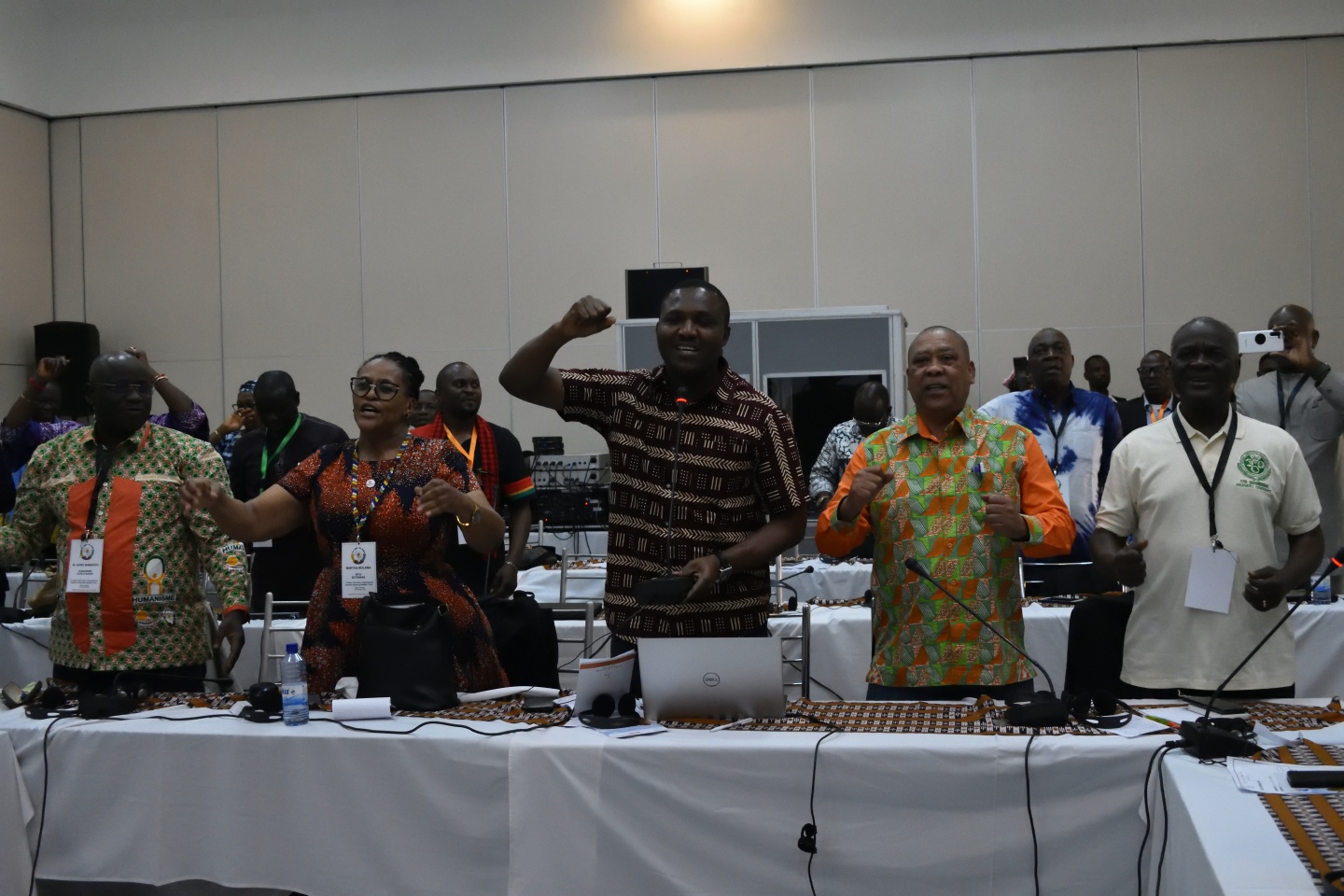10 October, 2024The African trade union organizing and collective bargaining strategic forum was launched in Kigali, Rwanda, on 3-4 October under the slogan “Building African Workers' Power in Our Lifetime.”
The forum brought together over 80 trade unionists from 28 African countries – over 50 per cent of the African Union’s 55 member states – with some participants coming from Belgium, Turkey, and Ireland. Participants included affiliates of the conference organizers, ITUC-Africa, ITUC, regional trade union organizations, and global trade union federations BWI Africa and Middle East, UNI Africa, and IndustriALL Sub Saharan Africa. The forum was hosted by the Central des Syndicats des Travailleurs du Rwanda (CESTRAR) – Rwanda’s workers trade union confederation.
The forum’s theme, organizing and collective bargaining: collaborating to improve defence and protection of workers' rights and trade union regeneration found resonance with the discussions. The issues discussed included on the critical need to strengthen union power and the unity of African workers through organizing and collective bargaining. Further, unions could also build power through cooperating with civil society organizations.
The forum comes as a result of the global union federations engagement on working closely to address workers’ issues on the continent.
The forum highlighted several barriers facing African trade unions which weakened their bargaining power and how these could be overcome. The barriers included low union density and fragmentation in most sectors. There was also competition among unions as different unions organized the same workers. It was recommended that unions should instead focus on unorganized workers. There were also weak strategies to engage the informal economy where most workers on the continent earned a living.
On precarious work, it was discussed that the rise of informal and platform work, characterized by short-term contracts, casualization, low wages, and lack of social protection eroded job security.
The forum expressed concern over the underrepresentation of youth and women in union activities, despite them making up a significant portion of the workforce. Although there is a bulging youth population in Africa, with over 60-70 per cent under the age of 35, it was mentioned that unions seemed not to have appropriate strategies to organize the young workers.
The use of the judicial systems to oppress workers through union bashing and busting, which is common in countries like Madagascar, Swaziland, and Zimbabwe, was identified as a threat to union organizing as it limited collective action especially the right to strike and picketing. It was mentioned that some African governments were reluctant to ratify and implement international labour conventions.
Akhator Joel Odigie ITUC-Africa general secretary said:
“Decolonization remains an unfinished project, with political, economic, and environmental systems failing to meet the aspirations of African workers. This means that a strategy to build a strong trade union movement through technology is needed.”
“Amidst unprecedented challenges such as senseless wars, attacks on living standards, and job insecurity unions must unite and also use social media as an organizing tool,”
emphasized Keith Jacobs, UNI Africa regional secretary.
Rose Omamo, ITUC-Africa deputy president and IndustriALL vice president added:
“Innovative organizing strategies that emphasize the need for unions to adopt new methods, such as organizing along supply chains and negotiating for workers in the platform economy are key. Further, unions must develop internal democratic governance while prioritizing on inclusivity, particularly for women, youth, and migrant workers.”
The forum pledged to focus on workers education, skills training on collective bargaining and negotiations, promote workers unity, and develop strategies to organize informal and platform workers. Strategies will also be developed for young workers and women as part of the forum’s action plan.






